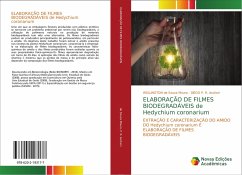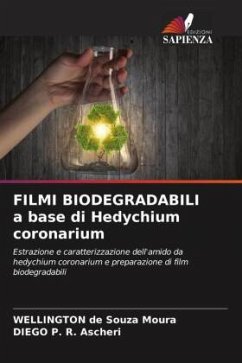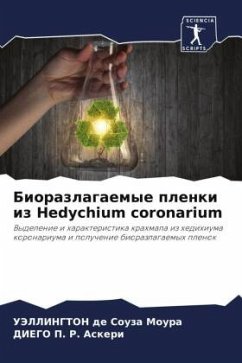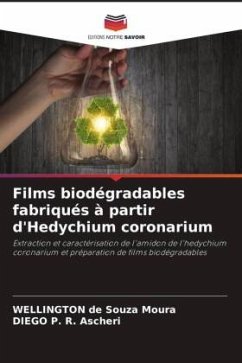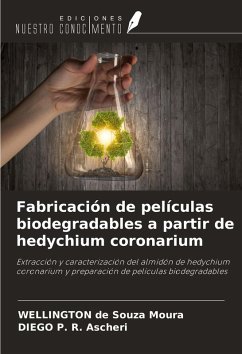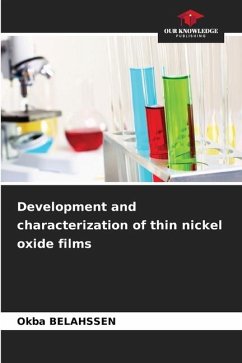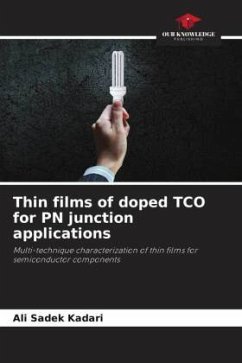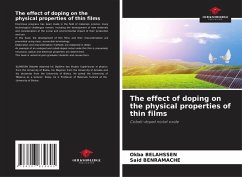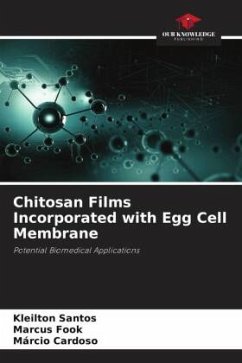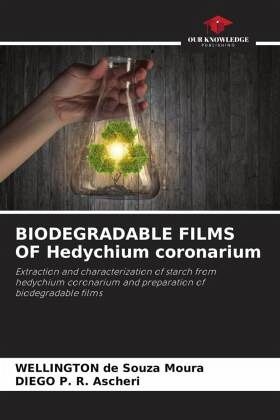
BIODEGRADABLE FILMS OF Hedychium coronarium
Extraction and characterization of starch from hedychium coronarium and preparation of biodegradable films
Versandkostenfrei!
Versandfertig in 6-10 Tagen
33,99 €
inkl. MwSt.

PAYBACK Punkte
17 °P sammeln!
Since flexible packaging made from synthetic plastic has become an environmental problem because it is not biodegradable, the use of natural polymers in the production of biodegradable materials has been an alternative. Biodegradable films can be produced mainly from polysaccharides, in particular starch. The aims of this work were to extract the starch present in the rhizomes of the Hedychium coronarium plant, characterize it and use it to make biodegradable films. The physical and chemical properties of the starch and the films produced were evaluated. The films showed degradation in around ...
Since flexible packaging made from synthetic plastic has become an environmental problem because it is not biodegradable, the use of natural polymers in the production of biodegradable materials has been an alternative. Biodegradable films can be produced mainly from polysaccharides, in particular starch. The aims of this work were to extract the starch present in the rhizomes of the Hedychium coronarium plant, characterize it and use it to make biodegradable films. The physical and chemical properties of the starch and the films produced were evaluated. The films showed degradation in around 45 days. The application of starch films as a vehicle for vitamin C showed that the loss of mass and active ingredient will depend on the composition of the biodegradable films.




